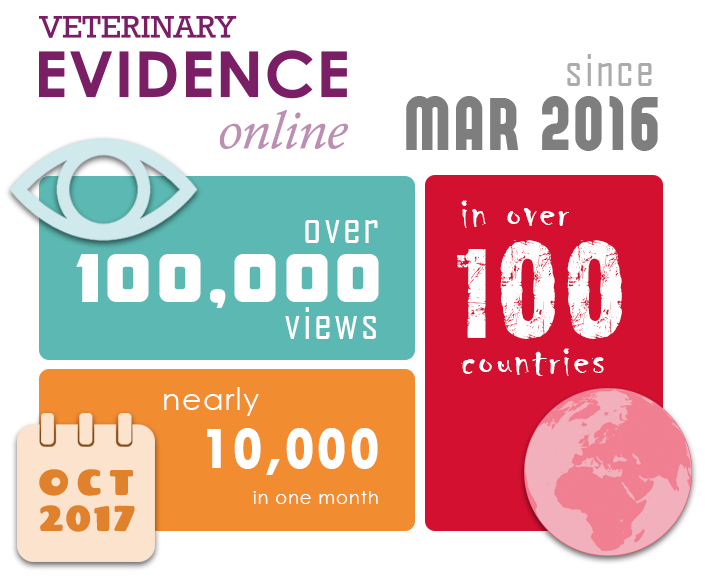Veterinary Evidence to be indexed in CAB Abstracts
6 December 2017
 After its most successful year yet, Veterinary Evidence (VE) is to be indexed in CAB Abstracts, the leading applied life sciences database.
After its most successful year yet, Veterinary Evidence (VE) is to be indexed in CAB Abstracts, the leading applied life sciences database.
Less than two years since VE launched, this is major recognition of the journal’s place within the industry and of the importance of its primary subject matter, evidence-based veterinary medicine (EBVM).
A 2012 study in the Journal of Veterinary Medical Education named CAB Abstracts as the bibliographic database with the most significant veterinary content. In being added, VE will be joining a resource cited as the most important inclusion in any search of the veterinary literature.
The online-only journal will be indexed from its very first issue (Vol 1, No 1) and will appear on the database in 2018.
Its inclusion is a testament to the high-quality standard of the journal’s content, editorial control and peer-review process.
Since its first issue in March 2016, Veterinary Evidence has garnered a global audience, being viewed over 100,000 times in more than 100 countries. The journal hit a new high earlier this year, reaching nearly 10,000 views in October alone.
 2017 also saw the introduction of Audio Summaries – easy-to-digest overviews of Knowledge Summaries – to the journal’s podcasts line-up. Having already achieved 8,000+ podcast downloads, VE will continue to build upon its position as the multimedia open-access journal for the EBVM community.
2017 also saw the introduction of Audio Summaries – easy-to-digest overviews of Knowledge Summaries – to the journal’s podcasts line-up. Having already achieved 8,000+ podcast downloads, VE will continue to build upon its position as the multimedia open-access journal for the EBVM community.
“It’s amazing to see the continual increase in visitors and views of our journal content, as it really shows the veterinary profession’s appetite for evidence-based material,” said Bridget Sheppard, Veterinary Evidence’s Managing Editor.
“We will continue to engage with our readership to help provide the evidence to their information needs.”
